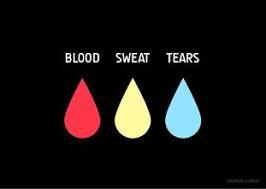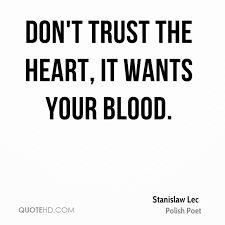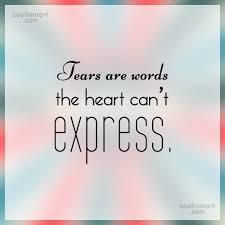Results: Blood, Sweat & Tears
Published on 09/22/2018
QUESTIONS
GO to COMMENTS
Comments
1.
1.
If they "made you so very happy" the title of this survey just might make you smile as you fondly remember Blood, Sweat & Tears, one of the first rock bands to integrate jazz-influenced horns, who burst onto the pop playlists with three million-sellers in 1969. Few groups burst on the music scene with as much promise as BS&T -- with some big names in music such as Al Kooper, David Clayton-Thomas, Bo Bice and others in-and-out of the band like a bit of a revolving door. The group reinvented itself several times, and weathered lots of personal and financial drama, but through it all, it's the music that people remember. If you remember them, which were your favorite songs?
You've Made Me so Very Happy
42%
600 votes
Spinning Wheel
37%
524 votes
I Love You More than You'll Ever Know
13%
190 votes
And When I Die
24%
345 votes
High on a Mountain
15%
217 votes
Lucretia MacEvil
10%
149 votes
Morning Glory
8%
117 votes
Go Down Gamblin'
9%
129 votes
I Can't Quit Her
6%
92 votes
Hi-De-Ho
14%
192 votes
God Bless The Child
20%
290 votes
Do not know who they are
35%
504 votes
Other (please specify)
3%
43 votes
2.
2.
If you don't remember Blood, Sweat & Tears, you probably have heard this expression. It literally means hard work and suffering. This phrase refers to any type of work that is strenuous and time-consuming. "I put my blood, sweat and tears into that project," meaning the speaker put everything he had into completing the work. It is rumored to have originated with Sir Winston Churchill in his famous "I have nothing to offer but blood, toil, tears and sweat" speech in 1940. However, it wasn't Churchill who coined 'blood, sweat and tears' - ultimately it is has a biblical source. Have you heard this expression, and have you ever used it?

I have heard it
68%
964 votes
I have used it
31%
435 votes
This is the first time hearing this expression
28%
400 votes
3.
3.
Which of the following blood trivia facts did you know?

Blood accounts for about 7 to 8 percent of your body weight, approximately a gallon
23%
325 votes
The most common blood type in the United States is O positive. The least common is AB negative. Blood type distributions vary by population. The most common blood type in Japan is A positive.
36%
518 votes
Human blood contains metals atoms including iron, chromium, manganese, zinc, lead, and copper -- it also contains small amounts of gold. The human body has about 0.2 milligrams of gold that is mostly found in the blood.
23%
324 votes
Blood circulating in your body is composed of about 55 percent plasma, 40 percent red blood cells, 4 percent platelets, and 1 percent white blood cells.
19%
270 votes
Red blood cells do not have nuclei and hence, they cannot undergo cell division.
11%
153 votes
When your nose runs it is due to your blood's attempt to keep your nose warm. This attempt creates a need for the blood vessels in your nose to dilate, which in turn causes them to create more mucus.
8%
107 votes
One of the interesting things that you will find in the trunk of the President of the Unites State's vehicle is a blood bank that contains his blood type.
7%
102 votes
Knew all
6%
79 votes
Knew none
47%
672 votes
4.
4.
How about these fun sweat trivia facts. How many did you know?

Composed of about 99 percent water, sweat evaporates on the skin's surface, cooling the body and keeping it from overheating.
38%
541 votes
Not all humans sweat equally. Women have more sweat glands than men, but men's sweat glands actually produce more sweat than women's.
26%
364 votes
Aside from humans, horses are one of the few mammals that thermoregulate by sweating.
15%
220 votes
Hippos actually produce a red-colored sweat, which acts as an antibiotic and sunscreen.
8%
113 votes
If you're sweating red and you're not a hippo, you might have a rare condition called hematohidrosis. Blood vessels rupture and run into sweat glands in affected individuals, causing them to actually sweat blood.
8%
117 votes
Cystic fibrosis can be detected with a sweat test. Sodium and chloride are much more concentrated in the sweat of individuals with the condition.
8%
119 votes
During intense exercise in the heat, athletes can sweat off 2 to 6 percent of their body weight.
21%
300 votes
Knew all
5%
73 votes
Knew none
47%
664 votes
5.
5.
And finally, you know it...tears. How many of these tears facts did you know?

There are actually three kinds of tears -- basal tears, which clean and lubricate your eyes, reflex tears, which drain when your eyes are irritated by onion, etc and emotional tears. Crocodile tears qualify as an unofficial 4th form of crying. These fake tears are specific to people with excellent acting skills, of course.
14%
203 votes
Tears have the same composition as saliva -- proteins, salt and hormones
17%
243 votes
You are more likely to cry at night than during the day
9%
122 votes
Crying is actually good for you. Some researchers suggest that emotional tears contain stress hormones, which the body pushes out during the process of crying. One more theory is that crying also releases feel-good endorphins- the same ones that are released during exercising and laughing.
36%
507 votes
Your nose can run when you cry because tears overflow from your eyes, goes into your nasal passage, and some of them end up flowing into the nose.
21%
296 votes
Even when you're not crying, your body generates 1-2 microliters worth of tears. You don't notice most of this production as they are blinked away as basal tears. Some of the tears are even rerouted down your throat while your body operates on autopilot.
6%
87 votes
Babies learn to cry differently in different cultures. Although babies universally cry to satisfy their needs, each culture's socialization processes lead to different ways of crying as an older child or adult.
7%
104 votes
Women in wealthier Western cultures cry more frequently than women in other countries. Simply put, excessive emotional crying is a first-world problem of sorts.
7%
97 votes
Knew all
5%
73 votes
Knew none
50%
713 votes
COMMENTS


